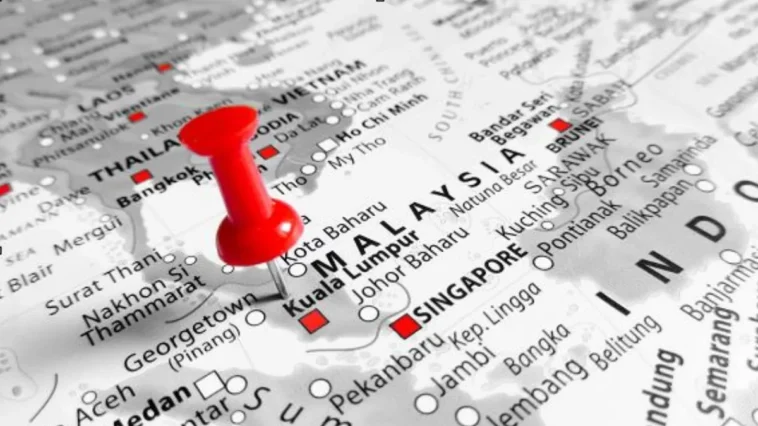The landscape of iGaming in Malaysia is as dynamic as it is captivating. With the industry’s rapid growth and technological advancements, Malaysian authorities have been on their toes, updating and enforcing regulations to keep pace.
Here’s a deep dive into what you need to know about iGaming rules and regulations in Malaysia for the year 2024, encapsulated in a blend of educational, informative, and fun exposition.
1. The Legal Framework
At the heart of Malaysia’s iGaming scene, like in live casino Malaysia, is a complex legal framework that strives to balance the booming digital entertainment sector with stringent control measures. Unlike traditional forms of gambling, which have clear-cut regulations, iGaming falls into a somewhat gray area.
Malaysian laws primarily focus on preventing gambling among its majority Muslim population, under the Sharia law, which strictly prohibits such activities. However, the secular law governing non-Muslims is more lenient, allowing for some forms of betting and gambling.
2. Licensing and Operations
As of 2024, Malaysia does not offer licensing opportunities for online casinos or betting services within its borders. This means that local entrepreneurs dreaming of launching the next big online casino have to set their sights on jurisdictions outside Malaysia.
However, this hasn’t stopped international iGaming companies from catering to Malaysian players, operating in a legal limbo that’s both risky and rewarding.
3. Taxation and Revenue

The Malaysian government has recognized the potential revenue from iGaming but struggles with implementing an effective taxation system due to the lack of a formal licensing framework. However, rumors are afloat that 2024 might see innovative approaches to tap into this goldmine.
Speculations include indirect taxation models and partnerships with offshore gaming companies, aimed at boosting national revenue without fully legalizing the activity.
4. Player Protection
One area where Malaysia is making strides is in the protection of iGaming participants. With the absence of local regulatory bodies, Malaysian players often turn to international sites, which can be a wild west of varying standards.
Recognizing this, Malaysian authorities have started collaborations with international regulatory bodies to ensure Malaysian players access sites that adhere to high standards of fairness and player protection.
5. Responsible Gaming
The dark side of iGaming—addiction, financial ruin, and associated social problems—is a significant concern for Malaysian regulators. In response, there’s an increased emphasis on responsible gaming.
Regulations in 2024 mandate international iGaming sites targeting Malaysians to include features like self-exclusion, deposit limits, and reality checks to help players manage their gambling habits.
6. Cybersecurity Measures

With the digital nature of iGaming, cybersecurity is paramount. Malaysian authorities are on high alert to combat threats like identity theft, financial fraud, and hacking, which are rampant in the online gambling world.
Regulations now require iGaming providers to implement robust cybersecurity measures to protect Malaysian players. This includes secure payment gateways, data encryption, and continuous monitoring for suspicious activities.
7. The Role of ISPs
Internet Service Providers (ISPs) in Malaysia play a crucial role in the enforcement of iGaming regulations. Under government directives, ISPs are responsible for blocking access to unauthorized iGaming sites. This move, while controversial among digital freedom advocates, is seen as a necessary evil to curb illegal online gambling activities. The effectiveness of this strategy, however, remains a topic of heated debate.
8. Advertising and Promotion
Advertising iGaming services in Malaysia is a tricky affair. Regulations strictly prohibit the promotion of online gambling services, making it challenging for operators to reach their potential audience.
However, this has led to creative marketing strategies, often walking the fine line of legal boundaries. The focus is on promoting a lifestyle or entertainment experience, rather than outright gambling, to skirt around these restrictions.
9. International Collaboration

The global nature of iGaming means that no country can effectively regulate it in isolation. Malaysia is increasingly participating in international forums and collaborations to share best practices, harmonize regulations, and tackle common challenges such as money laundering and fraud.
This international cooperation is a testament to the recognition that iGaming’s issues and opportunities know no borders.
10. Embracing Technological Innovation
Technological innovation remains at the forefront of shaping iGaming’s future. Malaysia’s approach to regulating technologies like artificial intelligence, which can personalize gaming experiences, or blockchain, which offers unprecedented transparency and security, will be crucial.
The country’s regulatory framework needs to be agile enough to accommodate these innovations while ensuring they don’t become conduits for harm.
11. The Push for Legal Clarity
One of the most vocal criticisms from both operators and players within the Malaysian iGaming community concerns the ambiguity of current regulations. The call for clearer, more definitive legal guidelines is growing louder.
Stakeholders are advocating for legislation that not only outlines what is permitted but also paves the way for a regulated, domestic iGaming industry that can contribute economically and socially to the country.
12. Strengthening International Networks

As mentioned, the cross-border nature of iGaming necessitates international cooperation. However, there’s a push towards not just collaboration but also the creation of a unified regulatory framework that could streamline operations across borders.
Such efforts would mitigate risks associated with money laundering and ensure that operators adhere to a set of universally accepted standards and practices.
13. Enhancing Public Awareness
Public education and awareness about the risks and realities of iGaming are seen as pivotal. Malaysian authorities are increasingly investing in campaigns aimed at informing the public about safe gambling practices and recognizing the signs of addiction.
This is coupled with efforts to destigmatize gambling addiction and provide support and resources for those in need.
14. Economic Implications
The economic implications of a regulated iGaming market in Malaysia are significant. Beyond potential tax revenues, there’s the prospect of job creation, technological innovation, and tourism. Recognizing this, some policymakers are advocating for a cautious yet proactive approach to harnessing iGaming’s economic potential while mitigating its social risks.
15. Cultural and Social Considerations

Finally, any discussion about iGaming in Malaysia must consider the country’s unique cultural and social fabric. The diversity of Malaysia’s population, with its mix of ethnicities and religions, poses specific challenges and opportunities for iGaming regulation.
Balancing respect for cultural and religious norms with the desires for personal freedom and entertainment requires a nuanced approach.
Final Thoughts
The world of iGaming in Malaysia is at a crossroads. As we move beyond 2024, the decisions made by regulators, operators, and the community will shape the future of this vibrant industry. Whether Malaysia can navigate these complex waters to create a model of iGaming that is safe, profitable, and responsible remains to be seen.
However, one thing is clear: the journey promises to be as intriguing as the games that lie at the heart of this digital frontier.





